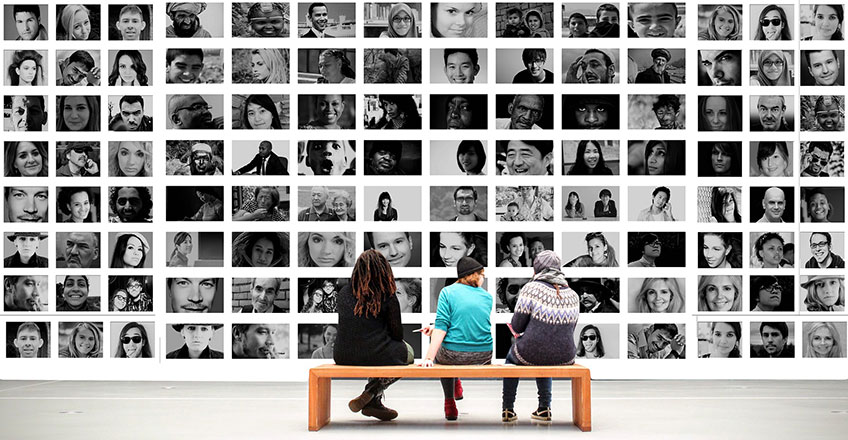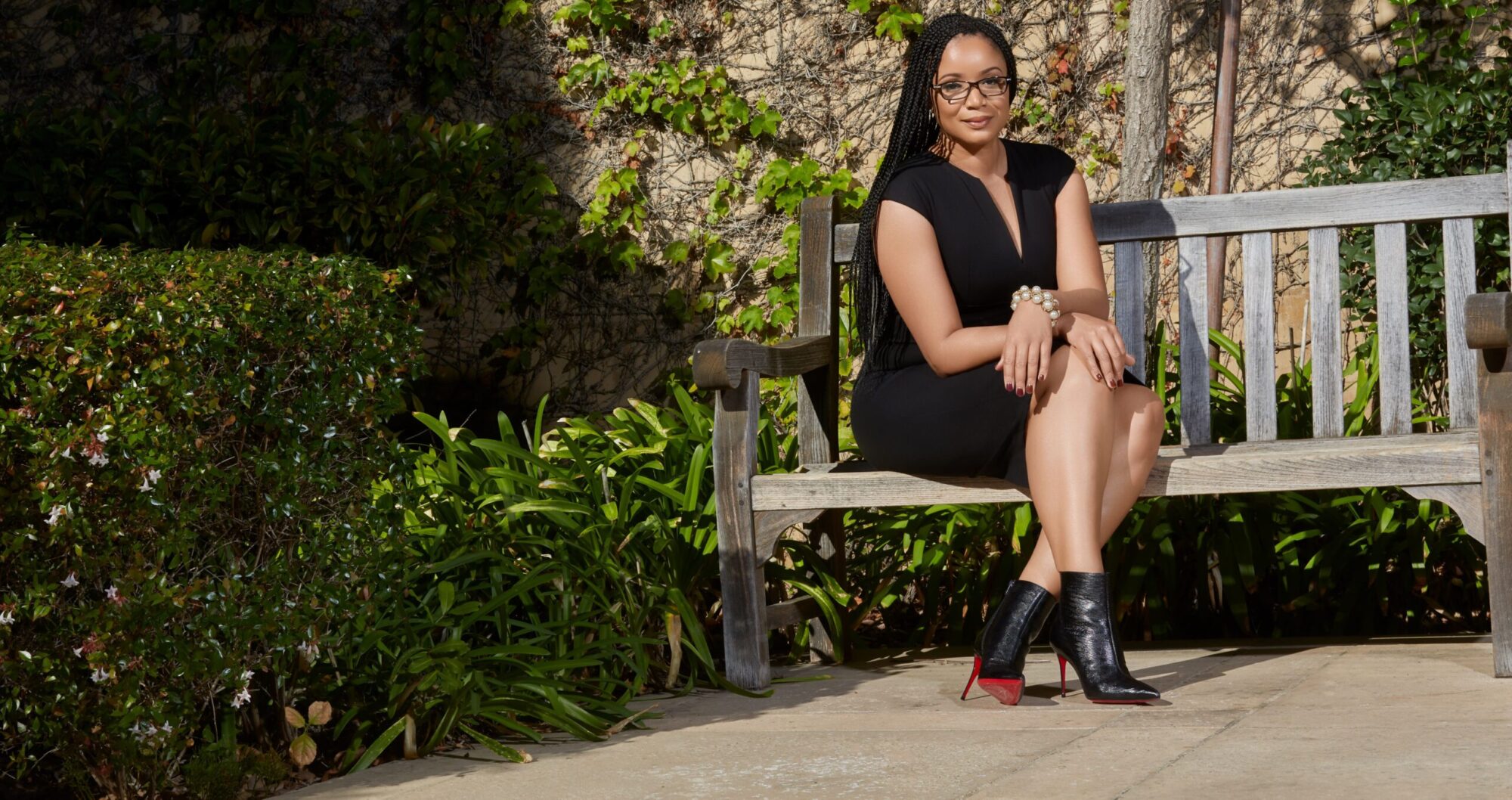Looking at Leadership: #YouToo? When lived experiences and our own awareness pre-date and go beyond a hashtag movement
By Dr. Jalin B. Johnson

Stop me if you’ve heard this one before: “A group of women and men came together and began sharing their truth…”
One of the challenges we face in higher education is remembering the mantra “With great power, comes great responsibility.” As educators of adult learners, we create a forum for adults, with diverse backgrounds and lived experiences, to come together and share those very truths.
When I first introduced the ECP framework (Experiences, Context & Perspective), during a series of professional leadership conferences (Johnson, 2015), focused on how lived experiences influence the context with which we view any given situation and thus, shape our perspectives, I began to see how people would reflect and re-evaluate “why” they felt the way they did. Whether in the classroom or in a public setting, as educators, we have to recognize that while our platform may be stationary, their lived experiences, context with which our stories are viewed and the shared perspectives of our students, are not invariable.
I had the opportunity to connect with a group of women who have lived experiences that existed prior to what we know as the #MeToo movement and whose perspectives are widely sought, both in the classroom and on the international stage. I asked them about their truths and what was on their minds. Here is what we learned…
These are Challenging Times; Haven’t They Always Been?
Leticia Rojas, Ed.D.
This has been a difficult month – really, a difficult couple of years. My friends and I have reflected and held each other up through what seems like a constant attack on our very beings as women, as people of color, as part of the queer community, as children of immigrants, and as human beings focused on prioritizing people over profit.
On Sept. 27, 2018, I watched Dr. Christine Blasey Ford’s testimony before the Senate Judiciary Committee during the (then) Supreme Court nominee, Judge Brett Kavanaugh’s Sexual Assault Hearing. I did not view it because it was extraordinary or unfamiliar, but rather the opposite, in its commonality among so many women. I held hope that it would make a difference for her and for all the lives of women and other communities affected in future court decisions. The day of the vote, one of my friends texted me that “if someone like Dr. Ford, with all of her privilege and legal counsel, was not to be believed, was it not clear why others with less privilege and more vulnerability to those in power, were afraid to name their oppressors?” We both understood it to be a rhetorical question.
This is a trying time for folks living at the margins who do not fit the mold of those making long-lasting decisions (although I would argue it always has been). But I try to find strength from those who came before me, including my strong Mexican mother and her mother and her mother; women whose stories might not get told and yet are so important to this world and to me. One woman who came before is Tarana Burke, the original #MeToo founder, and in a recent article, Variety (October, 2018), she advocated for a new iteration of the movement, focused on concrete actions and accountability. I am hopeful because of leaders and organizers like her and eager for the next iteration of a movement that is more inclusive and focused on justice. So, I unplug after having refueled, and with others, try to move forward, always.
UsToo, but Are You Ready for Our Stories?
Lata Murti, Ph.D.
I have a confession: I never listened to the Kavanaugh hearing nor the testimony of Dr. Christine Blasey Ford. It is not that I don’t admire Dr. Blasey Ford’s courage, or that I don’t appreciate the significance of her testimony for all women. It’s that her story is still not our story – the story of most of us who do not share her level of privilege.
Our story is one of never being invited or allowed to go to the parties of our wealthy high school and college peers, if we even knew about them. Our story is not having access to alcohol even when with our parents and older relatives, who rarely drink themselves. Our story is never being left alone in a room with a man other than an older male relative and always being escorted by a male relative in public. Our story is dating infrequently and not fully participating in, or benefiting from, the sexual revolution.
Still, Us Too.
Us Too, because at the age of 6, we sat away from our parents and next to a stranger in a dark theater, in order to get a better view of the cultural performance sponsored by our ethnic immigrant community. Us Too, because we were too petite and unpopular for any of our classmates to notice our much taller high school principal touching us inappropriately as he blocked their view in the classroom.
Us Too, because while studying abroad in another country, we decided to share a cab ride home one night with the neighbor who lived down the street from our host family. Us Too, because just a few months later, in the same country, we missed our bus stop, and had to walk alone, at night, through a field, to get to where our mother was staying. Never mind that we were almost fully clothed, in a loose T-shirt and jeans.
But who will hear our stories? The men who are responsible for them will never run for political office in the U.S. Many are poor, don’t speak English, and don’t even live here. Some of us are also poor, don’t speak English, and are not permanent residents of the U.S. Will we have a chance to tell our stories, too? If so, who will listen?
Us Too, but not like you, Dr. Blasey Ford.
‘Otherness’ as Our Strength
Sheila Lakshmi Steinberg, Ph.D.
I am a product of the two largest democracies, India and the United States.
My dad is from Kerala, India, and my mom is from Louisville, Kentucky. In other words; I am “the other.” I was different from many of my classmates and neighbors, throughout my life.
When I got married to my husband, Steve, my dad made an interesting comment at the wedding as part of the formal toast, sharing that I was “both the son and the daughter!” What my dad was indicating was a very cultural approach, that because I was the first-born, their only child and a girl, he raised me with the expectations of achievement and success “as if” I were male.
Females in every society, often face different expectations than males do. This, in itself, was interesting and helped set a high cultural bar for my achievements (beyond gender).
I’ve never really thought about being second place (to my male counterparts), because I was raised to actively compete and participate with them. I have a strong memory of being 3 years old and coming home from preschool upset because they made all of the girls make nurses hats, and all of the boys made doctor’s hats to align with said profession. I had wanted to be a doctor, not a nurse! My dad strongly let the preschool know that it was sexual inequality to enable the boys to only be doctors and girls, only nurses. In the end, I made a doctor’s hat!
For me, it has always been about trying to find a way to be “inclusive” and to make students feel welcomed, embrace our differences and building upon these differences as strengths, avoiding making someone feel like “the other.”
We can be stronger as a nation by embracing our differences. It is essential for our leaders to adopt inclusiveness as part of their toolbox of leadership skills, and to embrace differences as a strength and not as a threat.
Social Constructivism and Human Solidarity
Nakisha Castillo, DMFT
In the Swahili language, the word “harambee” means pulling together. As women we have to gather and examine the reality of the world that we live in and the meaning of being a female. Where does the truth lay for us? Where does our story begin and what part do we omit in order to protect others?
As the hashtag of the #MeToo movement unfolded, the reality of that hashtag changed from #MeToo to #UsToo, as we watch our community become painfully saturated with the stories being told. The hashtag offered an opportunity for women to examine their stories and experiences while in school, within their families, in social gatherings, and in the workplace. The reality of the matter came when we as women began to take a stand and say that our stories will be heard.
A hierarchical social construct, designed to dissociate women of their desires, strong sense of self and self-esteem, gives others the power to take advantage and to narrate our stories. We will not be dismissed. We will not be disrespected. We will not be silenced while our narratives are created for us – while our bodies, minds and abilities are taken advantage of.
As the dialogue surrounding harassment and sexual assault permeates around the globe, we have to find and create a safe space to tell our stories of pain, invisibilities, and exclusion, for ourselves. Stories of being made to feel guilt, shame, fear, and anger will be told. Stories of rising beyond anxiety, depression, and oppression for what others have done. Stories of courage and victory.
As I write, I think of the shared stories of our ancestors, untold for many reasons. Stories of resiliency and strength, without a hashtag to propel their plight.
Stories from a generation where such things weren’t openly discussed. We must take a different path for the next generation, setting aside race, ethnicity, privilege, and culture; agreeing to stand in human solidarity, demanding accountability.
As women I say, “Harambee, harambee,” as we let our voices be heard and share our untold stories.
Moving Forward
Jalin B. Johnson, Ed.D.
With all due respect, our lived experiences began before Alyssa Milano helped to make Tarana Burke’s original 2006 hashtag infamous. You can hear their shared discussion in a recent podcast here – (ACLU, October 2018).
The woman or man sitting across from you as you read this, or the person you had a conversation with after work, has a story that you may never know.
The leadership at your organization may have no idea about what happened to #YouToo and how that lived experience, shapes the context with which you view the many situations you face daily, and your enduring perspective.
There is a reason for that.
As you’re Looking at Leadership, consider the importance of creating and having spaces and opportunities to share your story, and for the stories of others around you, to be heard.
Become aware of what has happened before, what is already taking place, and what exists beyond the hashtag movement.
 Jalin B. Johnson, Ed.D., is an associate professor in the School of Business and Professional Studies at Brandman University, focusing on business and organizational leadership. She is a regular contributor on issues of leadership and current events.
Jalin B. Johnson, Ed.D., is an associate professor in the School of Business and Professional Studies at Brandman University, focusing on business and organizational leadership. She is a regular contributor on issues of leadership and current events.
